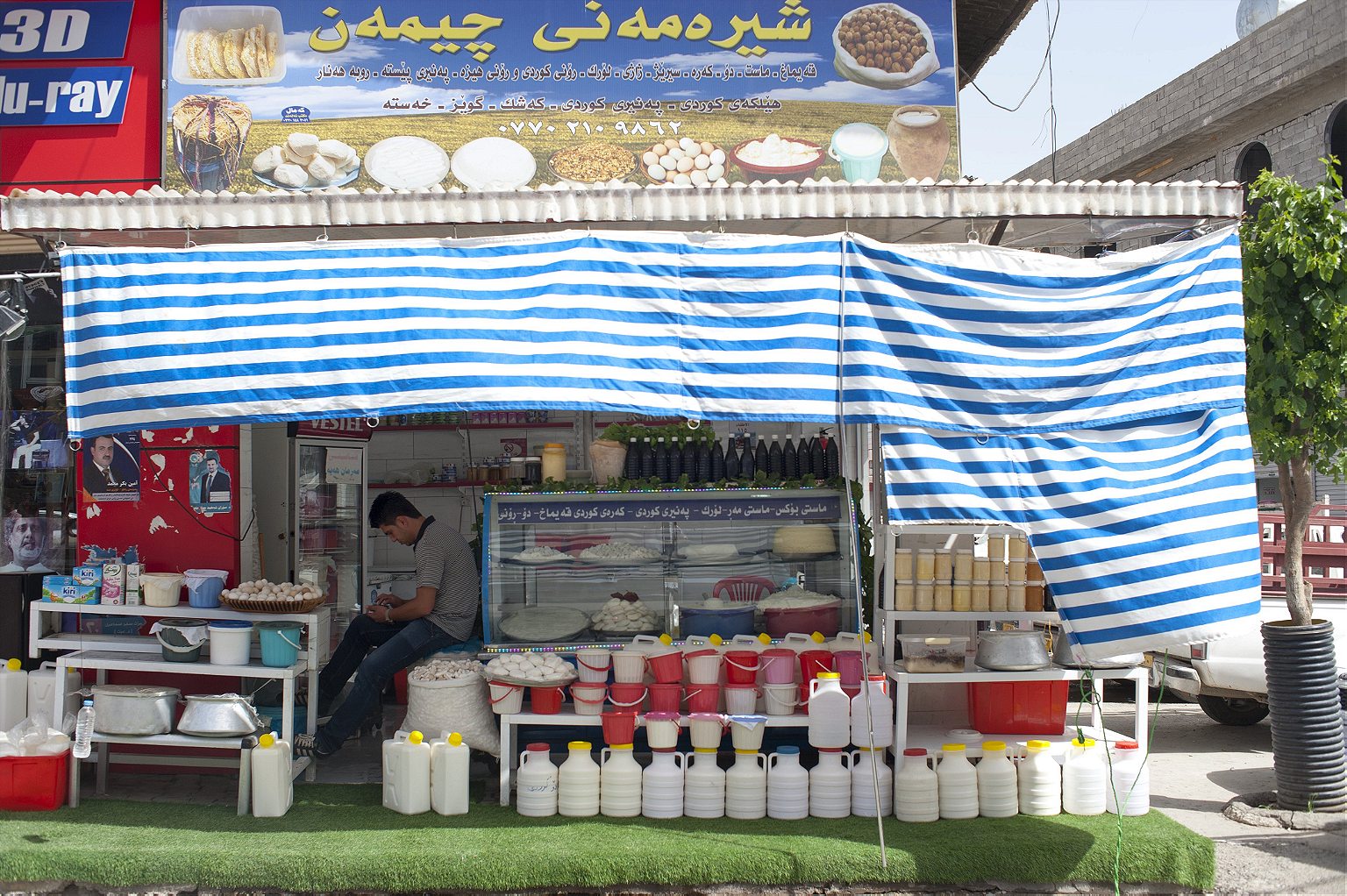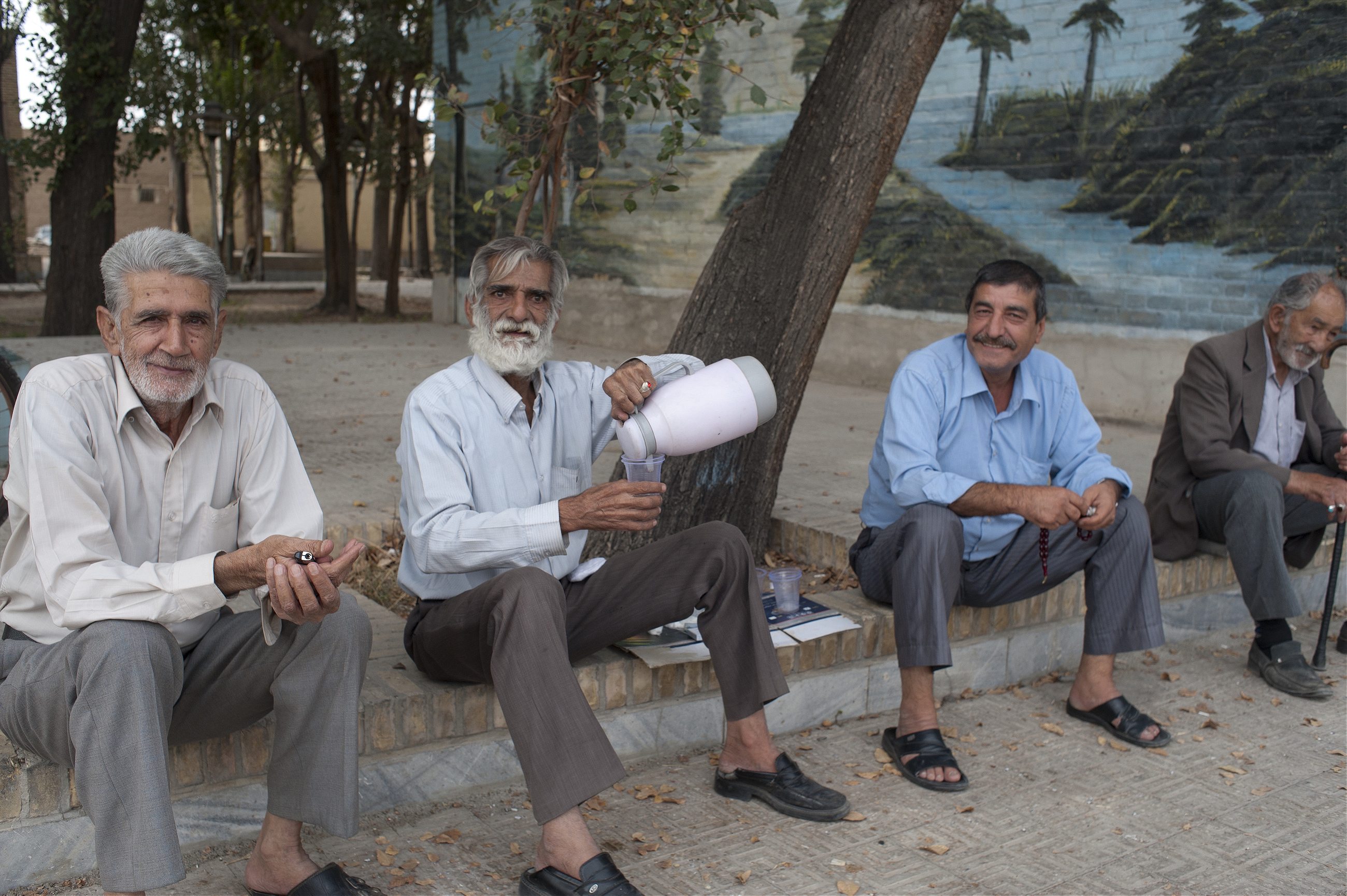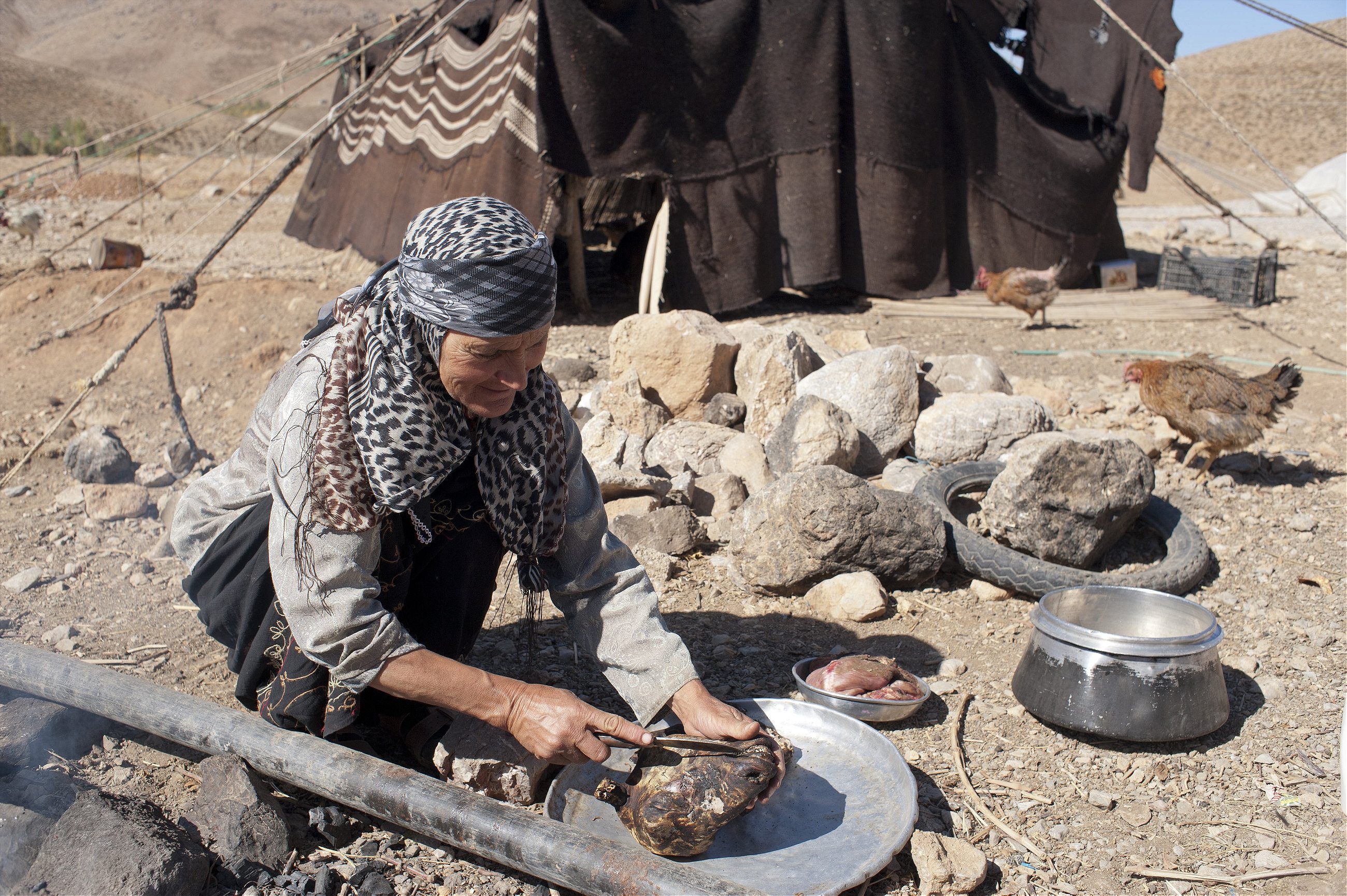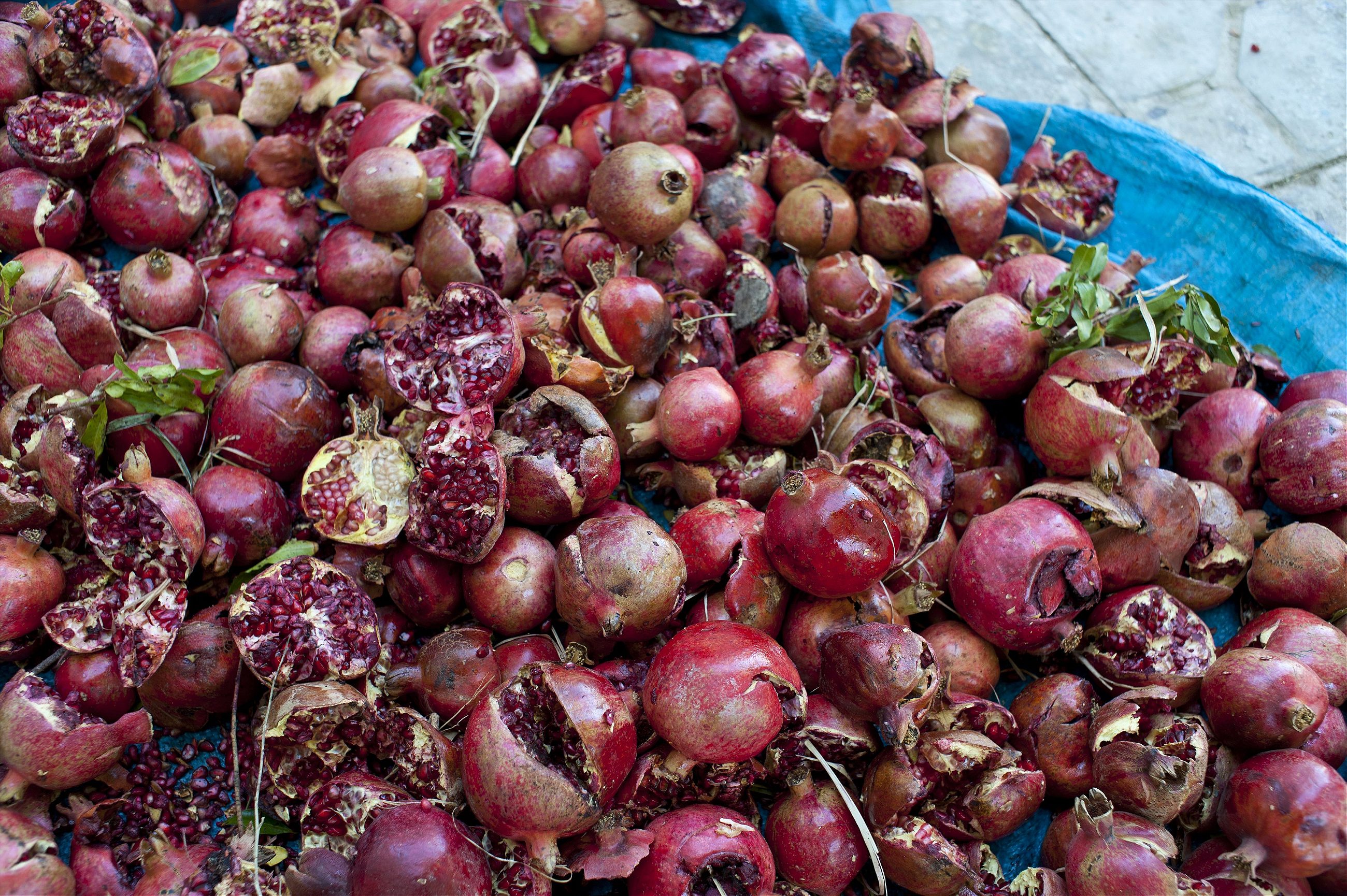A conversation with Naomi Duguid on her travels through Iran, gastro-nationalism, and the right way to eat a pomegranate.
It’s a little strange to ponder how closely Naomi Duguid’s cookbooks track with President Obama’s foreign policy initiatives; those aren’t typically two topics one discusses in the same breath. In 2012, when she released Burma: Rivers of Flavor, her intention was to familiarize the West with not just recipes, but also the people and culinary traditions of the isolated nation, which had just begun to re-establish relations with the West after decades of brutal military rule. Less than a year earlier, then-Secretary of State Hillary Clinton had made a controversial and historic visit to the country (the same week that Duguid filmed our how-to-lunch-in-Burma video with Roads & Kingdoms co-founder Matt Goulding).
Even as she was finishing her work in Burma, Duguid had begun contemplating where to go next. “What I like to do with a book,” she says, “is to try and make the ‘other’ less other, although it sounds pretentious when you say it like that.” Given her obsession with global crossroads and her talent for explaining humanity through the movement of ingredients and techniques and cultures, Iran seemed like a perfect choice. Back then, in 2012, Iran was facing renewed sanctions from the Obama administration and there were even calls for an all-out military strike on the country’s nuclear facilities. Today, as her new book Taste of Persia: A Cook’s Travels Through Armenia, Azerbaijan, Georgia, Iran, and Kurdistan is released, the U.S. and Iran have signed a comprehensive nuclear deal and newly relaxed sanctions have sent waves of Western tourists to Tehran and beyond.
“Food is a nice tangible way to give people a sense of intimacy with a culture they’re not familiar with,” says Duguid. She spoke with me about the benefit of being a culinary outsider, why she travels alone, and how to eat a pomegranate without looking like a blood-spattered lunatic.
Cara Parks: Do you feel that being an outsider to this region and culinary heritage gave you some advantages in making this book?
Naomi Duguid: People with Persian ancestry or [who are] from Iran have written Persian cookbooks, but that’s not what I’m doing. I’m trying to make cross connections so that people appreciate the context. In the book, I talk about gastro-nationalism: I never say a dish is Armenian or Georgian, I’ll say, “I came across this in Georgia.” For example, the Armenians call it Armenian coffee, while in the West people say Turkish coffee. That stuff is very contested, and I think it’s another way in which possibly, it was—easier is not exactly right, but it’s lighter if I do it as an outsider than somebody who’s identified with one particular part of the region. [There are] a lot of intense feelings around identity and ownership.

Parks: Although you write cookbooks, people often speak about your work more as journalism or anthropology. How do you see your role when researching these projects?
Duguid: I’m not a journalist. I’m an appreciative outsider. I want people to have an appreciation, a respect for the creativity of home cooks wherever they’re from, whether they’re from Bangladesh or from Georgia or from Iran, if they’re urban or rural. It’s amazing that people, mostly women, are turning out food for their families and figuring out all that stuff, often in situations that are complicated. It’s one of the still unsung heroics. What I’m doing is trying to find out about that well enough to tell the story and transmit it in a way that does it honor.
Parks: How did you start traveling to Iran in the first place? Were there restrictions on Canadian citizens at the time?
Duguid: I just thought to myself, ‘I will try not to be anxious about whether or not I can get a visa to Iran.’ I went looking online for Iranian travel agencies, and I found one. I didn’t know if it was a government one or a private person. I wrote and said, “Blah, blah, blah visa, Canadian passport, blah blah blah,” and they wrote back.
I did end up being able to go that fall. I was free to hang out on my own and not have a guide and do what I wanted. But because the Canadian government at the time was extremely right-wing, by January, right after I was there in my lovely freedom, I found that the rules for Canadians changed into the rules for Americans; you have to have a guide with you at all times.

Parks: How do you find your way into these different kitchens and make these connections with a new area?
Duguid: I start by not having contacts generally and trusting into lucking into having things unfold in various ways. For example, in Azerbaijan, I didn’t know anybody. I got [to Baku] and I was talking to the night desk guy [at my hotel] and saying, ‘Hey, I’m thinking about going to Shaki,’ which is a small town. And this guy says, “I have a friend who drives, he could drive there.”
I don’t go with a checklist of things I want, I go open-endedly. And it’s luxurious. Not luxurious in the sense that I’m staying in grand places because that would be a stupid thing to do even if I had the money. But it’s luxurious in the sense that I take the time I need and I’m also working on a project I’m free to define. It’s sort of a matter of letting go of your control issues.
I like being lonely, because it makes me vulnerable, and if I’m vulnerable, I’m alert
Parks: Do you prefer to travel alone or do you bring someone with you when you’re on the road?
Duguid: I’m always alone. If not, you’re in a bubble of two and you’re talking to each other. I like being lonely, in a way, because it makes me vulnerable, and if I’m vulnerable, I’m alert.
Parks: Tell me about one of your more memorable meals during your research for the book.
Duguid: I was staying on a farm in central southern Iran. My host at the farm took me to visit the nomads living in the mountains because his second wife was from there. The mother of the family we were visiting, his mother-in-law, had a sheep’s head and legs and she was singeing them on a fire and then cleaning them. She was making this very famous dish called kaleh poche, a comfort stew. You are not necessarily eating the [meat], you’re extracting flavor from it. It was delicious. You eat it with this unleavened flat bread that you dunk in your soup. I didn’t want any rice or chicken, I wanted just this incredible thing I had seen her make from pre-scratch. It was fabulous to be there just at that moment. Not tried for, not aimed at, it just came. What were all the thing I missed because I didn’t aim for things? I don’t know, but I do know what I got lucky with.

Another thing I learned from that family was how to eat pomegranate. Do you know how to eat a pomegranate so you don’t spill anything? If you were wearing a white shirt, and you had a lovely, ripe, heavy pomegranate, how would you eat it?
Parks: I would make an enormous mess and it would look like a crime scene.
Duguid: I watched one of the sons while we waited for the soup to cook. You press on it with your finger pads and with your thumb all over so that it’s no longer firm, like a soggy basketball that needs air. Then you take something sharp, like the tip of a pin, and poke it and put your mouth immediately on the hole. And then the juice just comes gushing out and you press and you keep pressing on it firmly, breaking all the seeds from the outside. Then you just break it open and pick up the seeds you missed.
Parks: You tend to focus on grains and other staple foods. What interests you about these dishes?
Duguid: In Kurdistan, they have a particular type of rice. Imagine rice that’s cooked in water and flavored with pomegranate molasses and walnuts. They call it black rice. It tastes like a simple risotto because of the richness of the walnuts. There’s all this going on and you think, ‘What, there’s nothing going on but some salt, pomegranate, and walnut?” There are these wonderfully simple things that are delicious and unknown to you and yet it seems so necessary. That’s how it feels, the food in that region, because it’s so tested by time. That’s why I think the simple dishes are the most exciting.

Parks: How do you address concerns about appropriation of a culture’s food by others? There’s a more exploitative aspect to some attempts to engage with other food cultures.
Duguid: I do think that happens. I think that food is dynamic, it is not static. We work with what we have and we like variety and we’re human beings, we’re curious. [But] I think that when fashion and ‘see how cool I can be,’ enters into it, it becomes falsified. You’re not doing something from respect, you’re doing it to be cool. And sometimes it’s very hard to judge the line.
That’s why I [focus on] the heroics of the home cooks. It’s taken for granted because it’s not flashy and it’s not about glitz and glitter and aspirations and money, all these things that in the end we know aren’t nearly as precious as things from the heart that are really rooted somewhere, in some sense of necessity.
I think it’s about respect and acknowledging others and a little bit of humbleness. No cook is the first one to do whatever it is they’re doing. It’s just not possible, so stop it already.
This article has been edited and condensed.
Cover image: Feasting with nomads, kaleh poche, hands with bread. Excerpted from Taste of Persia by Naomi Duguid (Artisan Books). Copyright © 2016. Photographs by Naomi Duguid.